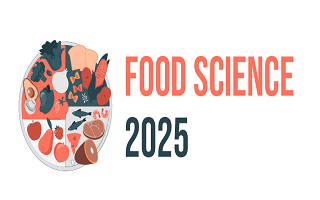2nd International Conference on
Food Science and Technology
September 19-20, 2025 | Online
Food Science 2025

University of Milan, Italy
Abstract:
The study explores the potential of a polyphenol-rich diet (PR-diet) to improve intestinal barrier integrity in older individuals with higher intestinal permeability and "inflammaging." Conducted as part of the MaPLE project, funded by the European Joint Programming Initiative, the research analyzed physiological parameters and metabolites in serum, urine, and feces.During the project the inflammatory markers in serum (CRP, TNF-alpha, IL-6, calprotectin) and feces (calprotectin) were measured. Two distinct clusters of older individuals were identified based on inflammatory markers: high (cH) and low (cL) inflammatory levels. The fecal microbiome community structure, analyzed through shallow shotgun metagenomics, effectively predicted these clusters.The PR-diet demonstrated its efficacy in reducing serum levels of triglycerides, aspartate aminotransferase, and serum calprotectin in the cH cluster. It also influenced the fecal microbiome, enhancing taxonomic richness and promoting the expansion of specific bacterial genera and species. Moreover, the PR-diet impacted metabolite levels in serum, urine, and feces, with significant differences between the cH and cL clusters. Gene prediction analysis highlighted pathways correlated with inflammatory markers. Thiazole biosynthesis negatively correlated with TNF-alpha, IL-6 and fecal calprotectin, while inosine-5’-phosphate biosynthesis III showed a positive correlation with TNF-alpha. In summary, the findings suggest that a PR-diet holds promise in mitigating inflammation in older individuals. The research contributes valuable insights into the intricate connections among diet, microbiome, and inflammation in aging. These findings pave the way for developing dietary interventions aimed at promoting healthy aging and represent a significant advancement in understanding the interplay of these factors.
Biography:
Dr. Giorgio Gargari
obtained his degree from the University of Trieste and further specialized in
system and synthetic biology field in Paris. Afterward, he pursued a food
systems doctorate program at the University of Milan, completing it at the age
of 29. Currently, he leverages his expertise as an Assistant Professor in the
microbiology and human microbiome ecology courses at the University of Milan.
Dr. Gargari has established himself as a prolific researcher, having published
over 50 articles in peer-review journals. His dedication to the field is
further demonstrated by his associated editor role for the BMC Journal: Gut
Pathogens
